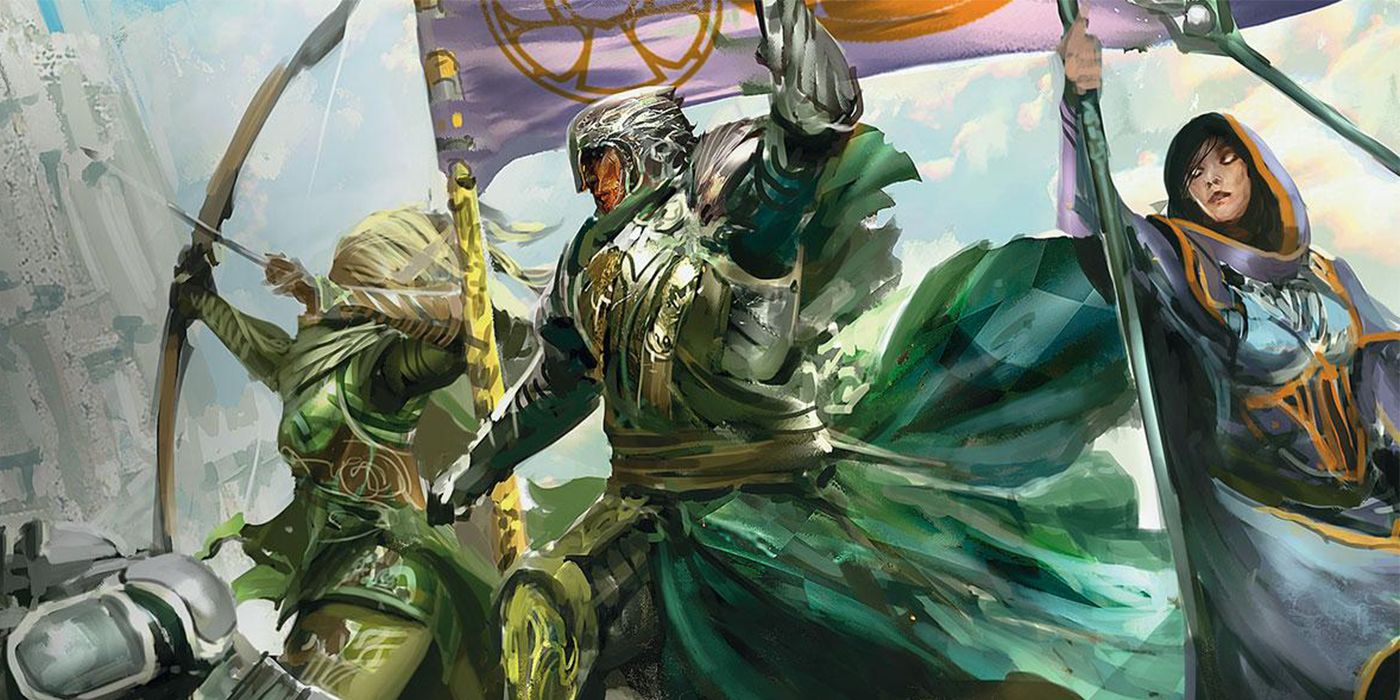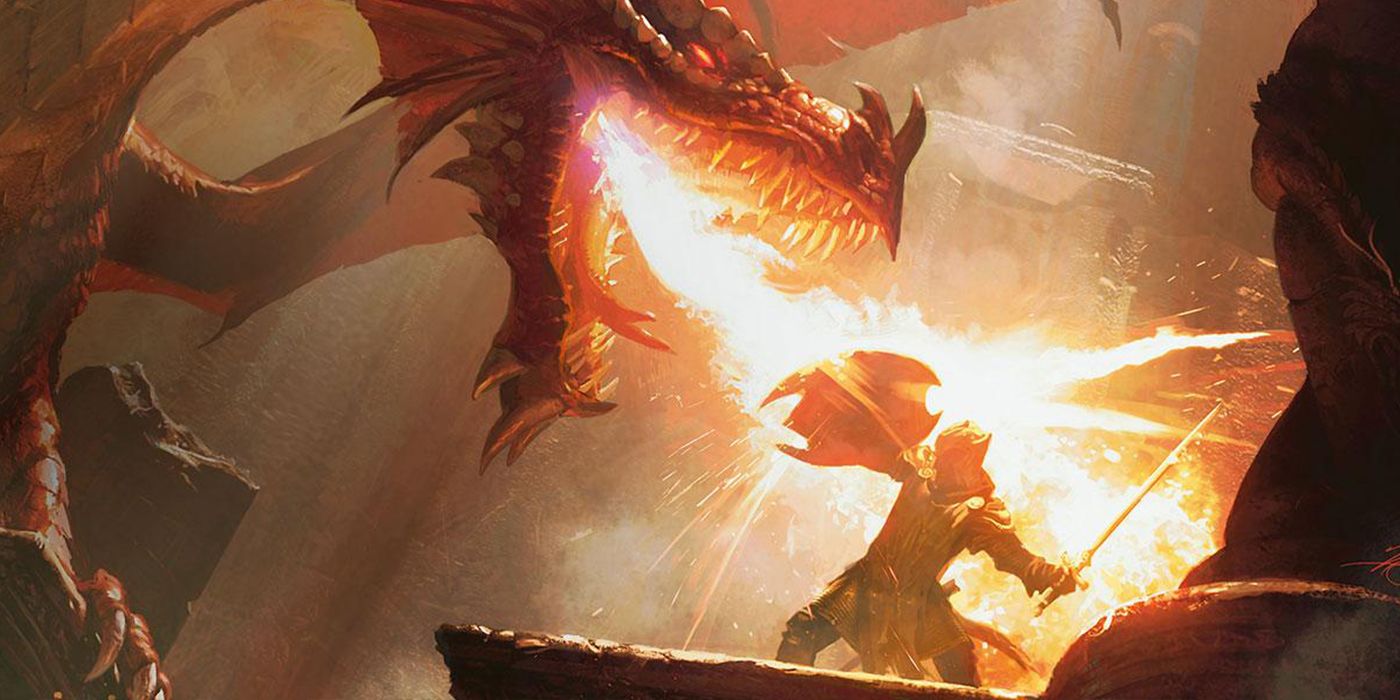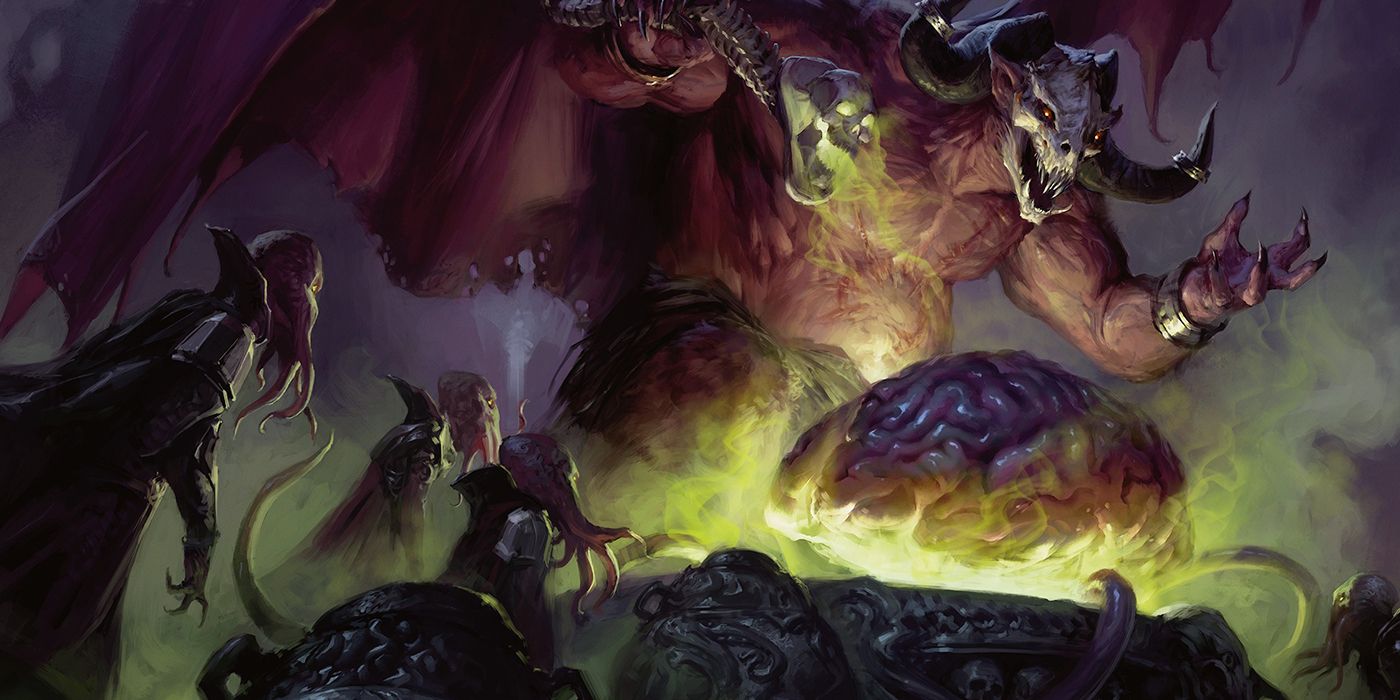A TPK, short for the dreaded "total party kill," is by no means inevitable as part of any Dungeons & Dragons campaign, but they are an entirely possible outcome for players to experience. So while the party may be working to avoid it, and killing off the group certainly isn't the goal of a good DM, it pays off to have a few strategies in mind for those inevitable times that a combat encounter starts to take a turn for the worst.
The fact is, it's good for DMs to have some ideas up their sleeve in the event of a possible TPK. It might seem odd for a dungeon master to put effort into changing fate in a campaign since their whole job is usually to just run the game and roll with the punches, but here's the thing: there are several good reasons that a DM might want to avoid a TPK just as much as players.
Firstly (and most importantly), Dungeons & Dragons is a game, played for fun. Now, players in some campaigns might consciously agree for realism--when death comes, that's just how it goes. But otherwise, well, it's not much fun for anyone when entire groups of players are decimated and sent back to square one. Players are miserable, and the DM is left managing a bunch of miserable players whose carefully-crafted characters just came to a sticky end with no emotional pay-off. However, there are genuine alternatives to a TPK using either narrative or game mechanics, depending on what the DM is going for.
And secondly, contrary to popular belief, D&D isn't supposed to be a "DM vs. players" type of game. A DM who pits themselves against their players isn't really embracing the spirit of the game; it's a collaborative experience, as much for the DM as for their players. Maybe the DM makes a mistake, and an encounter is a little unbalanced in its toughness despite their best efforts, which is very common. Or maybe the party just messes up and the DM doesn't want one stupid mistake on the party's part to ruin them, which is also totally fair.
As every D&D player knows, stupid mistakes are a common thing in gameplay, and they're just part of the fun. So, in the spirit of maintaining fun for both dungeon masters and players alike, here are a few handy tips for DMs in avoiding a D&D total party kill.
Imprisonment, Not Death
If an encounter is very clearly going south, and a TPK is undoubtedly imminent, there's still a way to salvage the situation without completely swooping in and saving the players with no narrative reason behind it. Just have their defeat result in capture rather than death! Every character drops, unconscious, and then wakes up some hours later in a dungeon cell. As a result, the adventure gets even more stakes added to it, the party learns a valuable lesson about working together on the battlefield (or suffering the consequences), and the campaign continues.
Granted, this might not always work. Some villains are adamant about their murder-prone worldviews, and some situations don't work great with relocating to a dungeon. However, when applicable, this method of TPK-avoidance can salvage a party while still delivering consequences for defeat. Plus, every D&D campaign needs a good old-fashioned prison break session.
Fake It 'Till They Make It
Could this be seen as cheating? Yes, potentially. But sometimes, DMs may just want to do away with roleplaying excuses altogether and fake some dice rolls to their players' benefit. When a TPK seems imminent, maybe the enemy starts missing their attacks; not every time, just enough, in a few choice moments, for the party to come away victorious by the skin of their teeth. Maybe the enemy fails their saving throw, or conversely, the enemy's save DC is silently lowered just enough for the one player left standing to dodge the area effect spell and keep moving.
Fudging dice rolls may seem like a violation of the rules of D&D, but look at it this way: first and foremost, the dungeon master's job is to run a fun campaign. And if a few altered dice rolls allow them to run the best possible combat encounter narrative (and keep the entire party alive), then a couple white lies are worth it. The fact is, changing around dice rolls is the quickest and easiest way to help players avoid a TPK. However, DMs who do this should employ the tactic sparingly and silently; fudging dice rolls is definitely not something players should feel free to do, nor can they with their dice rolls out in the open. This is one instance that the mysterious DM's screen works for the player's benefit too, even if they won't realize it.
Lay Down Clues
This is the most subtle and natural way of offering help to players, and it probably won't come up much in the thick of battle. So if the fight is winding down and the party is already losing, laying down clues shouldn't be the thing that DMs use to fix the situation. Instead, this is more of a preventative measure, one that works well within both the game's narrative and mechanics, no fudging dice rolls or quickly-conceived dungeons necessary.
Before introducing characters to an encounter that has been designed to challenge them, DMs can allow them to pick up some extra information about whatever they're facing, and thus give the party something more to strategize with. If one party member has something in their backstory that pertains to an enemy type, let them make a nature or history check; maybe that player can recall a weakness or two for the party to exploit in battle. Or perhaps the party's scout makes a well-timed perception check as they enter the battlegrounds, and sees a natural advantage to use against the enemy. Handing players a couple of critical clues allows them to still experience the challenge of the fight and exercise their own ability to problem-solve, while still giving them a leg up for whatever lies ahead.
Play God
When all else fails, there's a reason why DMs are jokingly likened to a great omnipresent deity in the sky. It is within the DM's power to snatch their players from the jaws of death, and as long as the dungeon master doing this doesn't mind getting a little creative, there are some fun directions to take this method. "Play God" means that something totally unexpected happens to deliver the party from their fate: maybe the characters told some of their friends or allies about the fight before it happens, so an NPC is able to swoop in and cast a powerful teleport spell--or strike the killing blow to an enemy when the characters cannot.
Perhaps the enemy has had their health whittled down enough that it flees too, just before the party goes down. An artifact could misfire, hitting the enemy when it was meant to strike the party. Or maybe something akin to literal divine intervention happens; the party's religious member prays for (and receives) an intercession.
The obvious flaw with the "Playing God" method of TPK-avoidance is how it can look and feel to players. Without a good amount of narrative context for it, players will easily recognize this for what it is: the DM bailing them out of otherwise certain defeat. D&D may be a game all about suspension of disbelief, but the mythic Elminster himself riding an ancient opalite dragon or (another weird monster) into battle to pluck the party out of an encounter is a little too much even for the most immersive players. So, in the case of playing god, DMs will need to think fast and possibly prepare some consequences further down the road for the turn of events.
Hopefully, it's clear enough to see why avoiding a TPK (even by bending the rules of Dungeons & Dragons) can actually be a very good thing. Sure, TPKs can still happen and they definitely do a lot to teach players about being a little smarter in the future, but they don't have to. The fact remains that there are other ways to teach players their combat smarts, and some campaigns just won't operate like that. There will be players who fully accept the possibility of starting over with new characters midway through, and players who absolutely dread that, and D&D isn't about punishing players.
At the end of the day, it's a game. Everyone is there to have fun, and players who are very attached to showing their characters a satisfying conclusion shouldn't have that option taken away from them. Single-character death is a different thing entirely, one that doesn't require a guide on avoidance, since there are clear ways for the rest of the party to handle it without a DM's intervention if they so choose. When the entire party's fate lies in the hands of the dungeon master, on the other hand, the right thing to do will be different depending on the players involved and the tone of the D&D campaign.
Sometimes, it's best to just let all the characters die, and that's okay. But there will also be times when the best thing to do isn't to just let events unfold. Sometimes, dungeon masters will need to buckle down and be the epic Dungeons & Dragons god their players always knew them to be...and that's okay, too.



